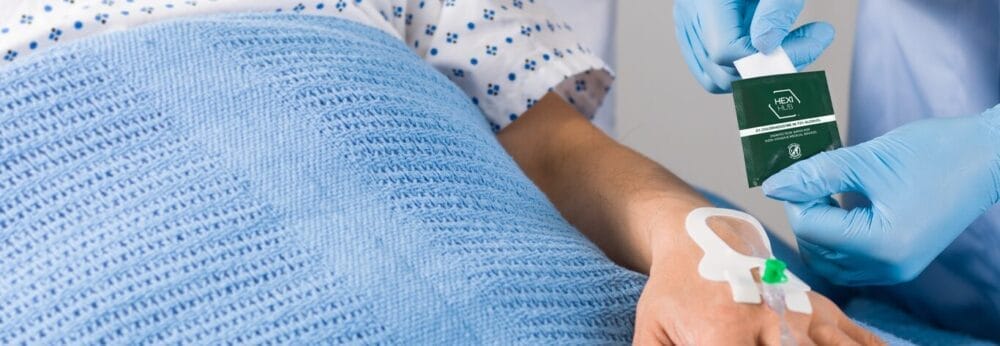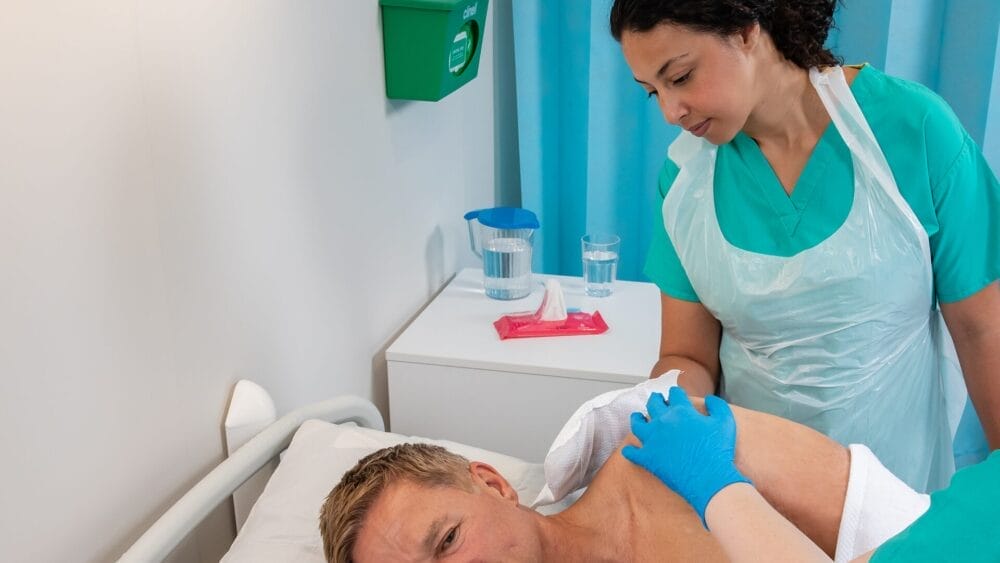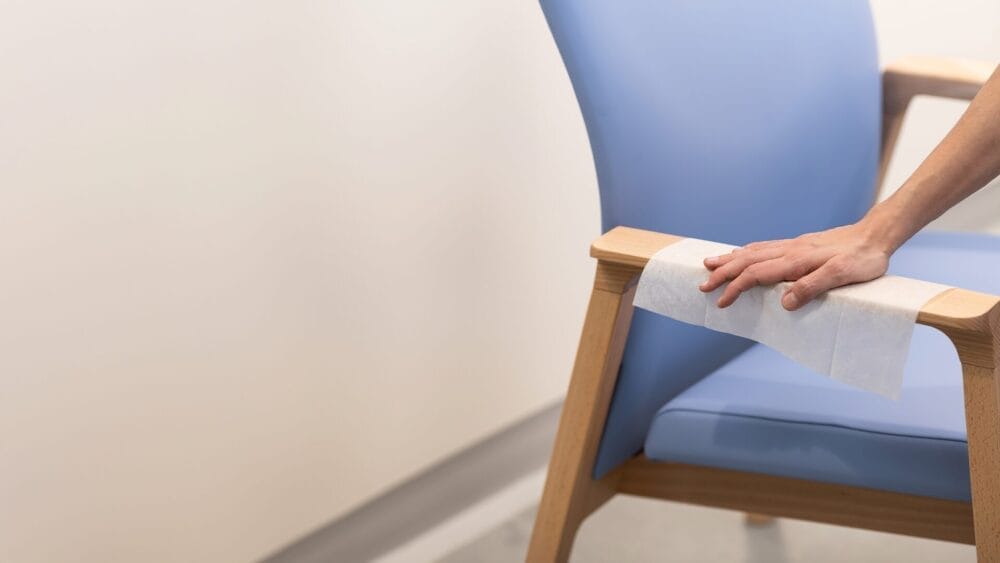Posted
12th October 2022
Events and Exhibitions
Today on the blog, Clinical Specialist, Michael Sanni, Clinical Director, Karen Wares, and Innovation Scientist, Diane Morris, reflect on their highlights from the inaugural Infection 360 conference.
The Infection 360 conference met face-to-face in Birmingham on 27th – 28th September bringing together a wide range of healthcare specialists, infection control nurses, engineers and industry partners invested in better novel infection control practice. Day one focused on Surgical Site Infection (SSI), sepsis, COVID-19 and other emerging pathogens, while Day two looked closely at healthcare buildings as a source of infection.
Opening session with Founder & Joint CEO of UK Sepsis Trust
The opening session from Dr. Ron Daniels, Founder & Joint CEO of UK Sepsis Trust, covered many aspects of the prevention, diagnosis and management of sepsis, which affects 49 million people worldwide each year, claiming 11 million lives. Dr. Daniels discussed the new UK guidance from the Academy of Medical Royal Colleges on the recognition and management of sepsis, with particular emphasis on the timing of antimicrobial therapy, with a view to minimise impact on antimicrobial resistance (AMR). He recognised that not every organisation is adopting the guidance as it doesn’t align with 2016 NICE guidance on sepsis, which is currently undergoing intermediate revisions.
Find out more about the UK Sepsis Trust and GAMA’s other charity partnerships.
Increasing rates of Clostridioides difficle
Professor Mark Wilcox from Leeds Teaching Hospital, continued by discussing the increasing rates of Clostridioides difficle(C. diff) during the pandemic and how the majority of cases are emerging in acute hospitals rather than the community. Comparing the recent quarter (January to March 2022) to January to March 2019, there was a 25.5% increase in the count of all reported cases, from 2,604 to 3,269. The global impact on antimicrobial resistance 2019 report emphasised the impact unregulated use of antibiotics has on microbes acquiring resistance.
Related article: Why antimicrobial resistance (AMR) poses a major threat to human health
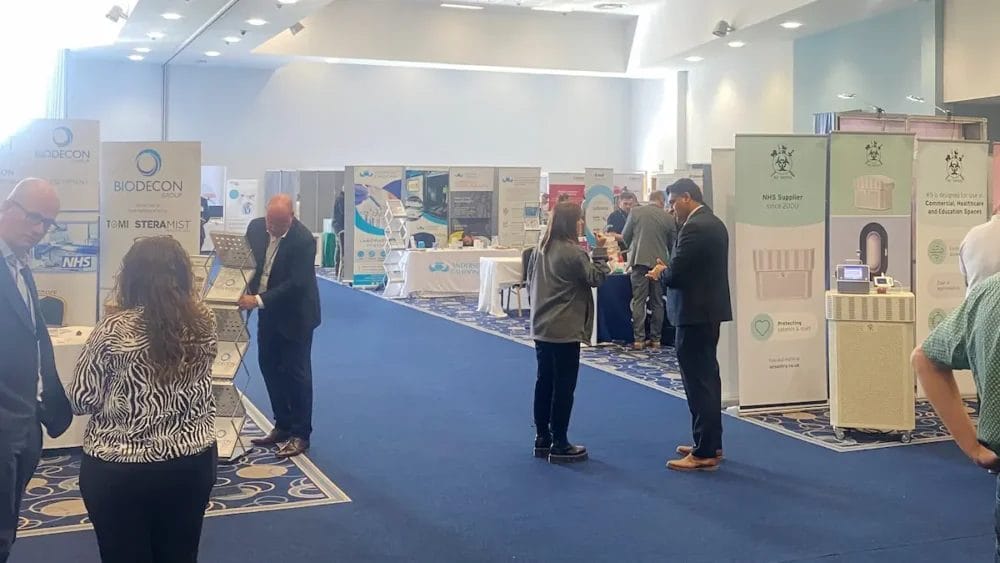
How chlorhexidine wipes can help prevent SSIs & reduce re-admission rates
Professor David Leaper and Consultant HPB & Emergency Surgeon, Giles Bond-Smith focused on surgical site infection (SSI) and care bundles. They elaborated on the foundations of SSI, then highlighted the precautions taken in one trust to reduce the rate from 68% to 22%, reducing bed days from 11 to 6 days and saving millions for their trust.
Part of this care bundle approach consisted of the need for proper education on pre-operative bathing, showering of the patient and the role of chlorhexidine wipes. Giles Bond-Smith’s second session discussed how preventing SSIs leads to reduced re-admission rates, antimicrobial stewardship, reduced waste with less dressings and less pollution from transport of patients and healthcare staff. He discussed the need to look after our water and the need to educate patients, raising that chlorhexidine wipes could be a more sustainable and environmentally friendly measure.
“IPC best practice as a primary part of medical practice”.
Professor Michael Borg discussed infection prevention and human behaviour. Using his own experience from his own hospital and paper by Sun jin et alregarding multi drug resistant organisms (MDRO) transmission, he expressed the cognitive dissonance between best practice and healthcare worker compliance. This highlighted that despite high levels of IPC training which were provided during the Covid pandemic, decreased hand hygiene compliance and poor PPE use (such as double gloving) was still observed. Forcing us to consider if better awareness and training is needed for healthcare worker to see IPC best practice as a primary part of medical practice.
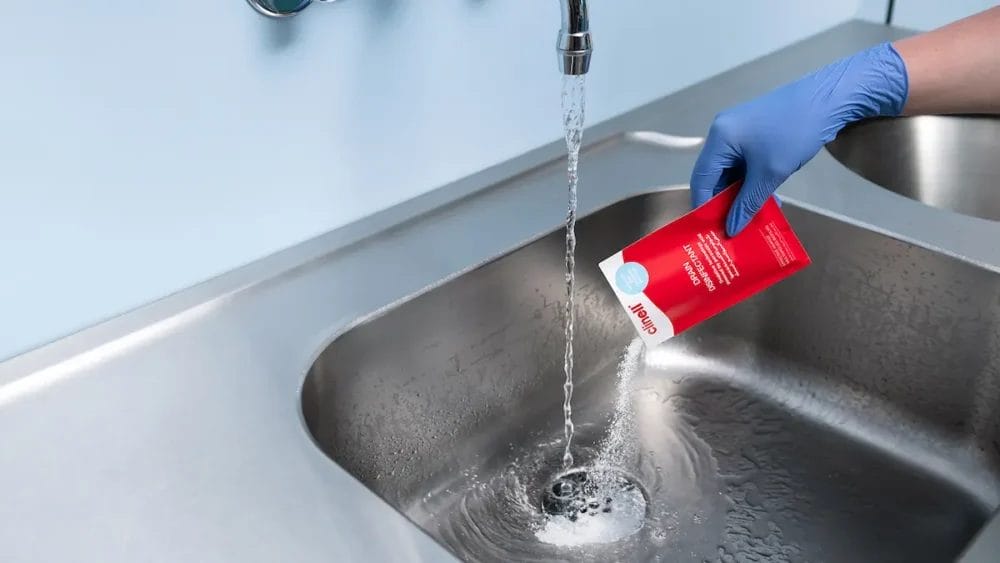
Highlights from Day 2
Day 2 started with a gripping review of the Queen Elizabeth Hospital (QEUH) Glasgow by Lisa Summers, Health & Social Care Correspondent at BBC Scotland. She focused on the recent documentary which explained that the review of the hospital explored problems with drainage and ventilation system leading to the investigation of 118 episodes of serious bacterial infections, 84 of them in children, who received treatment for blood disease, cancer or related conditions at the hospital.
This session led into several sessions on ventilation, building hospital facilities and water management. Dr Susanne Surman-Lee looked into water pathogens including everything from the risk of sinks and drain water to flannels. All while Dr Elaine Cloutman-Green gave the delegates insight into her copper and silver ionization introduction, in conjunction with an appropriately managed water system, as a sustainable and more patient-friendly solution to traditional thermostatic mixing valves.
Dr David Jenkins discussed infection risks focusing on the four aspects of a successful decontamination process:
- Pathogen: using good sampling techniques to determine what pathogens are present in the environment.
- Method: Determining what course of action is most effective at managing the transmission of these pathogens in the environment i.e. chemical, vapour, mechanical action (wiping) etc.
- Device: Knowing the efficacy of the chosen product. Using products with strong evidence to support their use and products which are cleanable
- Practice: Training staff on how to maintain best practise when decontaminating.
We thoroughly enjoyed this year’s conference and can’t wait for Infection 360 in Manchester next year!
GAMA healthcare is committed to providing a safe environment for patients and the wider community by preventing infections to save and improve lives. Head to our PAA drain disinfectant page and Rediair page to discover our latest solutions for decontaminating water and airborne pathogens.
SHARE THIS ARTICLE
Tags
Latest News
Embracing sustainability and cost savings: The journey of Clinell Indicator Notes to paper-based solutions
At GAMA Healthcare, we’ve always prided ourselves on being at…
Introducing HEXI HUB: A seamless transition in our product line
We’re pleased to announce an update to our product offering…
Innovative solutions for tackling Carbapenemase-producing Enterobacteriaceae (CPE) at King’s College Hospitals
King’s College Hospital NHS Foundation Trust, one of London’s largest…
Gloves Off: reducing unnecessary plastic waste during environmental cleaning and disinfection
In this blog, Dr Phil Norville discusses the momentum-gaining ‘Gloves…

